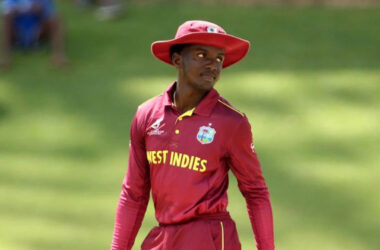MANY competent and experienced commentators have written about the decline and fall of West Indies cricket. A number of reasons have been advanced for such decline. The difficulty re-capturing the glory days has been a subtext of these discussions. The latest failures have been put down to poor fielding compared to the expert execution of the teams in the Lloyd and Richards’s era dating back to Sobers and Worrell. Indiscipline and bad manners have also been blamed for the decline. Few have expressed the lack proficiency in the field than Michael Holding.
Even with professional and expert presentation of statistics to support the selection of certain players, questions remain. For example why West Indies cricketers performed so admirably in times past and whether professional and committed administrations play a role. Who were the administrators of West Indies cricket and how much they were paid? This question takes us to the last great Secretary of the West Indies Cricket Board of Control, Peter Short of Barbados. It is worthy of note that after the era of Peter Short when the board was passed to regional black, untrained hands, the first thing the new ‘servants’ (or is it masters?) did was to drop the word ‘control’ from the original name.
It would be interesting to hear a qualified psychologist comment on that change. Experience has taught that the idea of control was never far from the minds of the new administrators of West Indies cricket. The big four still felt it was ‘their team’ even though they had opened up regional competitions to include the Windward and Leeward Islands. After three decades nothing has changed. In fact things may have gotten worse as far as the original four and their cricket administrators are concerned. This takes me to the crucial point of this article. The idea prevails that the big four must control West Indies cricket at all cost. It boils down to priority given their cricketers on a West Indies team. It would be interesting to discover what other criteria the selectors use.
Do leadership, gentlemanly conduct and team spirit (putting the team before personal considerations) matter to the selectors? Put more bluntly, if two young cricketers perform equally with bat, ball and fielding but one is clearly an uncooperative trouble maker, and the other more amenable to playing and fitting into the team, which one will be selected on the West Indies cricket team. Now if the potential trouble maker is from one of the big four and the more amenable team-player is from the Windward or Leeward Islands, which of the two is more likely to be picked to play for West Indies?
We may also ask whether the home and family background of cricketers matter in their overall performance on and off the field of play. It should not go un-noticed that in the ‘bad-ole-days’ there were very talented cricketers who were not selected on the West Indies cricket team because of their anti-social, selfish and mean-spirited natures. Let me quickly add that raw cricketing talent and intellect are not correlated and that the environment may be as important as the home in shaping character. A disciplined young man who is properly socialized and who is used to obeying his parents, teachers, administrators and elders will more likely apply himself to serious practice when called upon by his cricket coach so to do. There is one more thing which West Indies cricket selectors (as well as territorial selectors) should get straight. Not every young cricketer will become a Sobers, or Lloyd or Richards or Holding. What is important here is to decipher which qualities gave rise to these cricketing greats.
These former greats exhibited at least four qualities. These are: 1. a passion for the game; 2. continuous application in all departments of the game; 3. strict discipline on and off the field; 4.pride in all they did. They believed that the game was bigger than them and that playing for West Indies was an honour to be achieved and maintained. For those who still do not get it, money, fees and perks were never at the forefront of these great cricketers and others of the past. Today, when the largest salaries are paid to West Indies cricketers, their performance has been abysmal and uninspiring, not to say mediocre. To add insult to injury the conduct of the modern West Indies cricketer leaves much to be desired. Offering apologies and flimsy excuses and refusing to take appropriate drastic action is similar to masking a festering wound instead of lancing it and applying proper medication.
In the latest incidence in India when a planned tour was cut short half way it seems clear that the players, the West Indies Cricket Board and the Players’ Welfare Association cannot be equally culpable. Someone has to take the blame for this latest debacle. Had the West Indies Cricket Board been on its toes and not asleep at the wheels, the president, his lawyer and adviser would have flown to India at the least sign of trouble. The respect and support which the Indian Cricket Board and Indian cricket fans have for West Indies cricket should have been the primary reason for speedy action by the West Indies Board. There were signs of trouble. For instance, many present day cricketers view the game as merely a source of income. Such income is protected by contract. In this scenario the players union is more respected than either the selectors or the board. Performance and loyalty hardly seem to matter. The game has no other use than income.
With such attitudes it has gotten into some players’ heads that poor performance does not matter. They think themselves indispensable. But the indiscipline must stop. Dispensing with the ring leaders in the recent embarrassment to West Indies and the Indian Cricket Boards is the right thing to do. West Indies cricket has been such an integral and crucial part of international cricket that no international cricket tournament can produce the same colour and excitement without the maroon blazers from the Caribbean. Indeed, the pride and place of West Indies cricket on the international stage can only be recaptured if players come from respectable homes and in environment conducive to hard work and discipline.
As a people we should not lose sight of the fact that talent and ability without the social graces leave us short of some of the essentials for proper representation. One must have a positive attitude and recognize that being the face of a people carries the responsibility of being diplomatic and ambassadorial. Without these ingredients the question ‘whither West Indies cricket’ will continue to haunt us.














You were right for the most part until you held the board responsible for what happened in India. About two months ago I wrote an article in the Star entitled ”WICB Not at Fault” perhaps it might clarify the issues for you. You need to remember nothing was said by the players until the eve of the first ODI when they virtually took everyone by surprise. You must also remember that Dave Cameron told Bravo and company that the Board’s CEO, WIPA President and the Chairman of the Cricket Committee were coming to India and would address their concerns.
Also bear in mind that the 14 cricketers who were in India represented a minute amount of WIPA’s membership. The Board and WIPA could not go to India and negotiate with only 14 members of a much larger group who would be impacted by any decision arrived at. The Board may be asleep, but not in that case. Please remember the money which those 14 cricketers are crying about went to those playing in the West Indies.